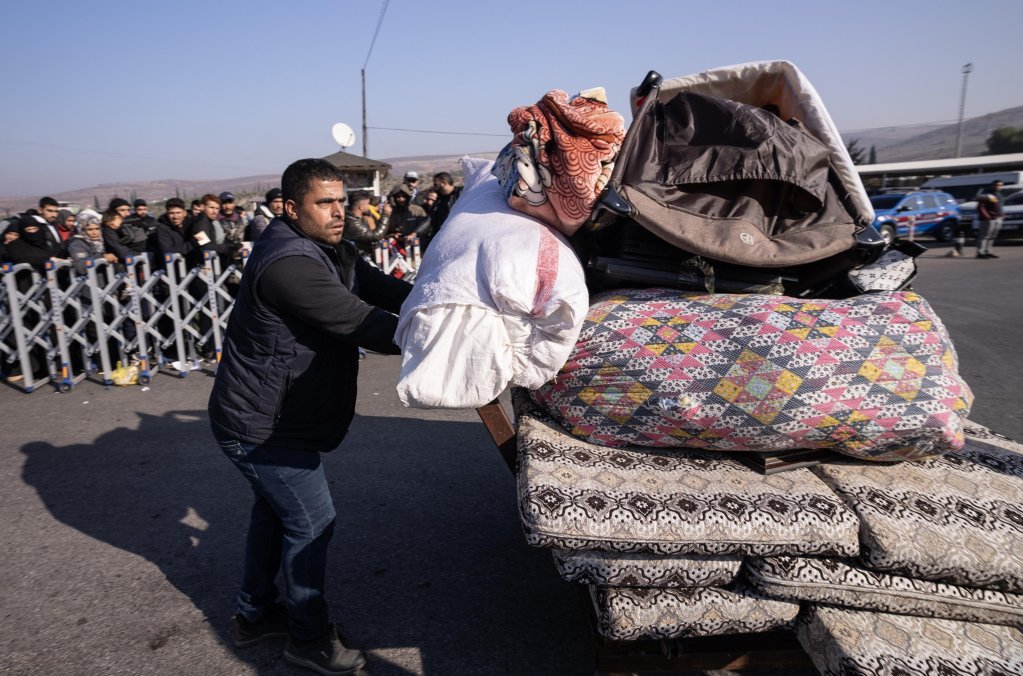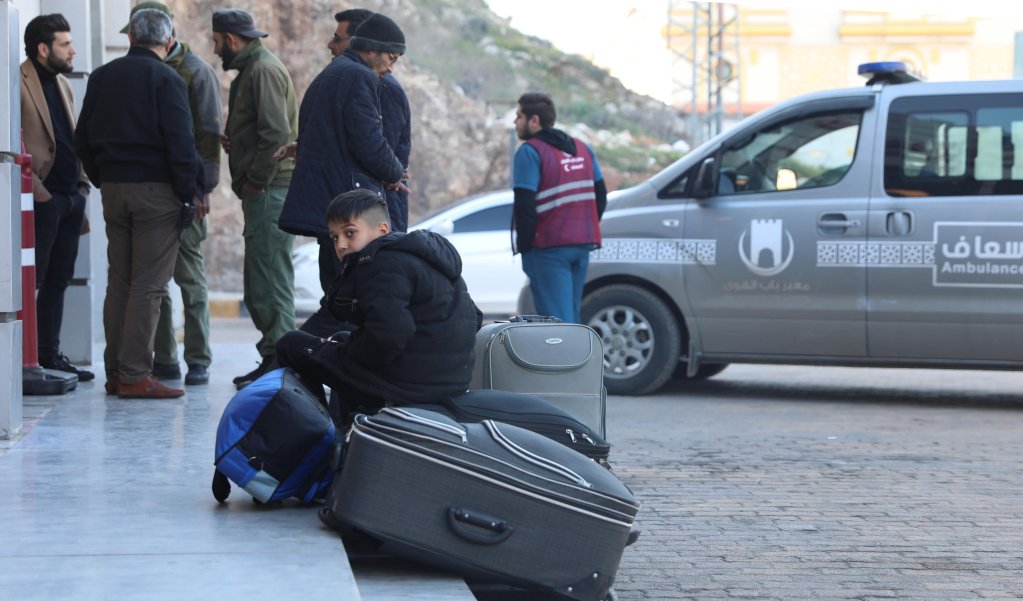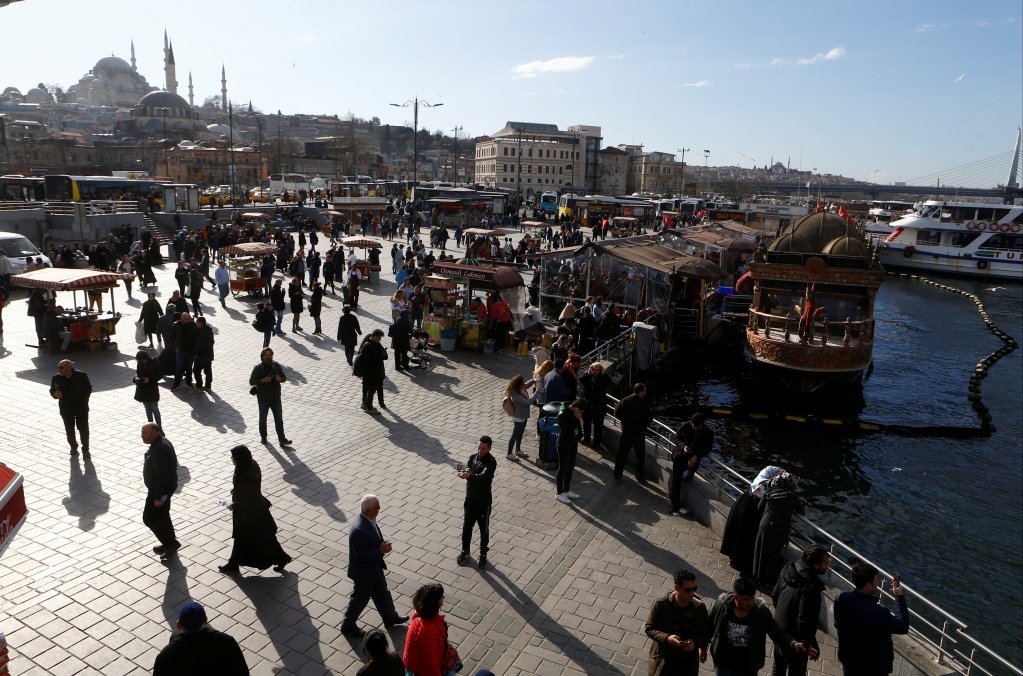More than 410,000 Syrians have returned home from Turkey after fleeing there during the conflict in their home country. According to the Turkish authorities, 140,000 of those have returned since mid-June alone.
The Turkish Interior Ministry says that 411,649 Syrians have left Turkey to return to their home country since Syria’s former leader Bashar al-Assad fell from power in December 2024. The Turkish immigration service added that around 140,000 of those returns have taken place since mid-June this year, reported the French news agency Agence France Presse (AFP).
In June, the head of the UN Refugee Agency UNHCR, Filippo Grandi, said that around 600,000 Syrians had returned to their home country from neighbors like Lebanon and Turkey.
At the height of the conflict in Syria, the Turkish authorities claimed they had almost four million Syrians living in their country. In data released in early August, the government now says there are around 2.5 million Syrian nationals still in Turkey.
Read AlsoMore and more Syrians leave Turkey to return home amid uncertainty
'Things aren't clear'
Turkey provided Syrians with a six-month window after the fall of Assad to return to Syria for a visit before committing to returning home for good. That was set to close on July 1, reported the online news portal Syria Direct in late June.
That publication reported from the southern Turkish city of Kilis, just five kilometers from the border with Syria, at the end of June, where they found evidence of shops on the street known as "Syria Street" emptying out as people left to return home.

A group of Syrian women interviewed for the report told Syria Direct that they had felt a gradual change in Kilis over the years. Although Syrians sometimes complained of facing discrimination and hostility in Turkey, one of the women said that their Turkish neighbors seemed to be urging them to stay a little longer before committing to return, because "things aren't clear."
Read AlsoSyria: Thousands displaced once more after attacks and killings in Latakia
Syrian returns could affect Turkish business and society
A university student, named as Fatima in the report, said that she believed Turkish people "are behaving normally with us because now it’s very clear that we will return to our country."
Samia, a 47-year-old fashion designer, told Syria Direct that most Syrians she knew were indeed heading back. She said the exodus was becoming a "big problem for Turkish business and landlords."
Fatima echoed that sentiment, explaining, "as Syrians leave, fewer people will rent homes or work. You can see more rent or for sale signs being put up."
At the time, Syrians made up about 27 percent of the population of Kilis, reported Syria Direct.
The women themselves all said they hoped to return, but wanted to wait a year or two before making the final decision.

'Go and see policy'
Turkey’s "go and see" policy of visiting but not committing to returning was criticized by some Turkish people. Didem Danis, a professor of sociology at Galatasaray University, reportedly told Syria Direct that those who expressed anti-Syrian sentiment felt that "if they can visit, they can stay –no need to return."
Danis expected the Turkish government to extend their policy beyond July to encourage more to return. On July 29, the Asylum Information Database (AIDA) and European Council on Refugees and Exiles (ECRE) wrote that there had been "no formal discussion regarding the lifting of temporary protection status in Turkey" for Syrians.
The "go and see" policy allowed up to three visits so that individuals could assess the feasibility of rebuilding their lives in Syria. The Turkish authorities also expanded the infrastructure at the border to allow for returns.
But despite the possibilities and overall desire to return home, many Syrians who had been granted temporary protection status in Turkey expressed caution about returning, noted AIDA and ECRE.
Read AlsoAfter Assad's fall, over 300,000 Syrians return home
'Serious concerns' about Syria remain
The majority cited "serious concerns regarding the current state of infrastructure, healthcare, education and overall security conditions in Syria," stated the ECRE report.
Women and children were more inclined to remain in Turkey, while the men were more likely to visit and see what could be rebuilt in their homeland.
Interestingly, one of the biggest barriers to women returning, noted the ECRE report, is that many women have ended up as single mothers who may wish to return to Syria with their children, but are often required to present the consent of the father to the authorities, even in cases where the father may have abandoned the family, is untraceable, or has already returned to Syria, either voluntarily or through deportation.

"This requirement has created significant legal and practical barriers, effectively preventing many mothers from returning with their children despite their willingness to do so."
As of December 2024, AIDA / ECRE noted that there were ten large-scale camps accommodating approximately 59,796 Syrians with temporary protection, spread across eight provinces in southern Turkey, including Kilis, as well as Adana, Hatay, Kahramanmaras, Osmaniye, Gaziantep, Malatya and Sanliurfa.
Read AlsoGermany: Financial incentives offered to Syrians to return home
Turkish authorities offer support to return to Syria
According to the Turkish newspaper The Daily Sabah, close to the Turkish government, "every step" of the return process, "from registration to transportation planning", is being coordinated by the Turkish authorities.
Any Syrians who want to return voluntarily, reported the newspaper, can schedule an appointment with the provincial directorate of migration management in their city, via the website randevu.goc.gov.tr
Once at the appointment, returnees will be issued with a voluntary return form, a travel permit to cross the border and to reach the border cities from within Turkey, and if necessary, a letter of consent.
Syrian children are, according to the newspaper, even provided with gifts before leaving Turkey. The UNHCR monitors the voluntary returns coordination at the Turkish border.
Outbreaks of sectarian violence have also scarred Syria as the new transitional government tries to stabilize the country. This has worried many who might be considering returning home, sometimes with children who were born outside Syria.
Read AlsoAn uncertain future: Returning home to Syria or retaining refugee status?
Dreams and reality
In late July, the US-American public broadcaster NPR spoke to four different Syrian families living in Turkey. One young 32-year-old student, Adham Aljamous, says the question for him was not, will he return, but "how and at what cost?" He added that he hoped to be able to do it when "circumstances were suitable."
Aljamous told NPR that sometimes he thinks about who might be left in Syria: "Sometimes, I just sit and try to think who’s left [in Syria] – literally no one from my friends. I don’t know anyone there. So if I go back, I think it’s going to be a big problem for me."
Another couple interviewed by NPR, who met while protesting against al-Assad’s regime and were both arrested for their activism, are unsure whether to go back. They have both visited, but said that they didn’t recognize the country they had left.
The couple’s two children, both born in Turkey, speak Turkish more fluently than they do Arabic. Their mother, Bushra Ajaj, says she worries that the children might feel like strangers in their parents' homeland.

One man interviewed by NPR, a civil engineer called Ahmad al-Taleb, is planning to leave Turkey for Aleppo in October, alongside his wife and three-year-old son Kamal. Al-Taleb admits there are no guarantees but is hoping his wife will have the opportunity to finish university once home and says, "we belong to Syria. Turkey is our second home, but it’s not where we belong."
The final person interviewed is a translator and literature expert, Mohammed Jamil Alshammary. He told NPR that although home "is calling" he didn’t think his family was yet ready. He has visited Syria but thinks that even the capital Damascus is not yet safe. "I won’t bring my family there," explains Alshammary.
But he’s taking the first step and hopes to open a translation agency in Damascus. He tells NPR: "we must not clone the past. No more corruption. No more exclusion."
With AFP
Read AlsoSyrian refugee in Turkey says he is not ready to return
